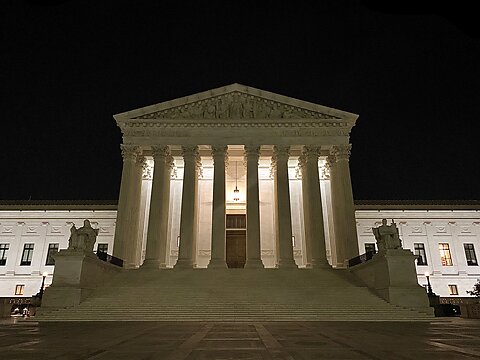The selection of Matthew Whitaker to be acting attorney general in 2018 directed unprecedented attention toward a previously little‐studied constitutional question. Whitaker was a relatively obscure figure in the Department of Justice, and he was not serving in a Senate‐confirmed position at the time of his selection. How could it be constitutional for someone whom the Senate had neither vetted nor approved to lead the Department of Justice?
Yet challenges to the constitutionality of Whitaker’s service all failed in court. Whitaker’s service seemed in clear tension with basic constitutional principles, but courts felt bound by a century‐old precedent to uphold it. That unusual state of affairs is the subject of my new article in the Georgetown Journal of Law & Public Policy.
“Acting officers” are officers who temporarily fill a vacancy in a position without having been confirmed by the Senate to that position. In my article, I argue that acting cabinet members may only serve if they have been previously confirmed by the Senate to a related position (such as a deputy head of a department). I argue that this rule is required by the Supreme Court’s leading case on appointments, Edmond v. United States.
That case held that cabinet members are “principal officers,” officers who require Senate consent because they have no superior but the president. Edmond did not suggest there was any exception for officers who serve temporarily, and Edmond’s logic applies just as much to acting officers as it does to permanent ones.
However, as I recount in the article, there is a much older precedent that points in the opposite direction. In 1898, the Supreme Court decided United States v. Eaton. A diplomat named Sempronius Boyd was in Bangkok serving in a Senate‐confirmed consul position. Boyd became seriously ill and sailed back to America, but before he did he tapped a missionary named Lewis Eaton to serve as the acting vice‐consul general for a short time, during which Eaton effectively exercised all the powers of a consul. Eaton was never confirmed by the Senate to any position, and the question in the case was whether this lack of confirmation meant Eaton’s service was unlawful.
The Supreme Court held that Eaton’s service was constitutional. The court held that even though vice‐consuls sometimes performed the duties of consuls during vacancies, they were nonetheless still only “inferior” officers, not principal officers who must be confirmed by the Senate. In the key passage, the Court held that Eaton was only “charged with the performance of the duty of the superior for a limited time and under special and temporary conditions” and therefore was “not thereby transformed into the superior and permanent official.”
The Supreme Court relied not on the original meaning of the word “inferior” for this holding, but rather on a functionalist and pragmatic argument. The court predicted that holding vice‐consuls to be principal officers “would render void any and every delegation of power to an inferior to perform under any circumstances or exigency the duties of a superior officer, and the discharge of administrative duties would be seriously hindered.”
In my article, I argue that Eaton should be overruled. Compared to modern textualist and originalist decisions, Eaton’s reasoning is not persuasive. Eaton fails to engage with the meaning of the word “inferior,” and its holding is apparently based more on pragmatic concerns than constitutional text. The fact that neither scholars nor courts can coalesce on a concrete length of time past which Eaton’s exception no longer applies strongly suggests that its exception lacks a principled grounding in the Constitution in the first place. While Edmond’s rule is clear and textually grounded, Eaton’s exception to the rule is vague and its origin is unclear.
So long as Eaton remains good law, presidents can fill cabinet positions with unconfirmed officers, a practice at odds with Edmond and with the original meaning of the Appointments Clause. If the Supreme Court’s lack of appetite to overrule Eaton arises from pragmatic concerns, those concerns should not be determinative. In my article, I explain how the federal government can stock itself with enough Senate‐confirmed career officials to fill every possible vacancy among the principal offices. The Supreme Court should recognize that Eaton is a relic of a different constitutional era. The federal government will survive bringing the constitutional law of acting officers into the twenty‐first century.

